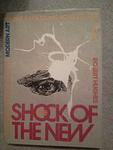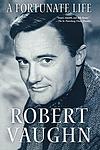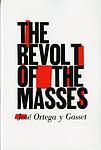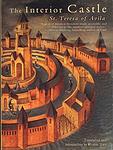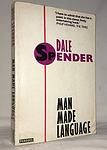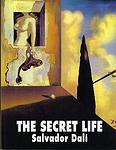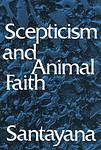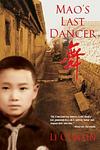The Greatest Australian, Spanish "Nonfiction" Books of All Time
Click to learn how this list is calculated.
This list represents a comprehensive and trusted collection of the greatest books. Developed through a specialized algorithm, it brings together 300 'best of' book lists to form a definitive guide to the world's most acclaimed books. For those interested in how these books are chosen, additional details can be found on the rankings page.
Genres
Countries
Date Range
Reading Statistics
Click the button below to see how many of these books you've read!
Download
If you're interested in downloading this list as a CSV file for use in a spreadsheet application, you can easily do so by clicking the button below. Please note that to ensure a manageable file size and faster download, the CSV will include details for only the first 500 books.
Download-
1. Schindler's List by Thomas Keneally
The book tells the true story of a German businessman who saves more than a thousand Polish Jews during the Holocaust by employing them in his factories. The protagonist's transformation from a greedy high living war profiteer to a savior of lives forms the crux of the narrative. It offers a chilling yet inspiring account of the horrors of the Holocaust, human resilience, and the power of one individual to make a significant difference.
-
2. The Female Eunuch by Germaine Greer
This book is a seminal feminist text that explores the oppression of women in society. It critiques the traditional roles and expectations of women in the mid-20th century, arguing that societal norms and conventions force women into a secondary, submissive role, effectively castrating them. The book encourages women to reject these norms and to embrace their own sexual liberation, arguing for the need for a revolution in the way women perceive themselves and their place in society.
-
3. Schindler's Ark by Thomas Keneally
The book is a historical novel based on the true story of a German industrialist who becomes an unlikely humanitarian amid the barbaric Nazi reign. When he witnesses the horrors inflicted upon the Jews, he is moved to save as many as he can by employing them in his factory. His actions, driven by courage and compassion, lead to the salvation of over a thousand Jewish workers from certain death in the Holocaust. The narrative explores themes of morality, survival, and the capacity for good in the face of overwhelming evil, as the protagonist navigates the complexities of war and the human spirit.
-
4. The Road from Coorain by Jill Ker Conway
"The Road from Coorain" is a memoir that chronicles the author's journey from her childhood on a remote sheep station in Australia, through her adolescence in war-ravaged Sydney, and finally, to her departure for America. The narrative explores themes of self-discovery, gender roles, and the power of education while providing a vivid portrayal of life in the Australian outback. The memoir also delves into the author's complex relationship with her mother and the impact of her father's death on their family.
-
5. The Shock of the New by Robert Hughes
"The Shock of the New" is an insightful exploration of modern art from the late 19th century to the present day. The book examines the cultural, social, and political forces that shaped and influenced the development of various art movements such as Cubism, Futurism, Surrealism, and Pop Art. It also provides an in-depth analysis of the works of prominent artists who played pivotal roles in these movements. The book serves as a comprehensive guide to understanding the complexities and nuances of modern art.
-
6. A Fortunate Life by A.B. Facey
"A Fortunate Life" is a memoir that chronicles the extraordinary life of a man who overcame immense hardships and adversity to find happiness and contentment. From his humble beginnings in rural Australia to his experiences as a soldier in World War I, the author shares his remarkable journey filled with poverty, loss, and resilience. Despite facing numerous challenges, he remains optimistic and grateful for the opportunities life has presented him, ultimately proving that a fortunate life is not defined by material wealth, but by the strength of the human spirit.
-
7. Tracks by Robyn Davidson
"Tracks" is a memoir that recounts the author's extraordinary journey across the Australian desert on camelback. The narrative provides vivid descriptions of the harsh desert landscape, the challenges faced during this nine-month, 1,700-mile trek, and the transformation of the author's personal character along the way. The book also explores her interactions with the indigenous Aboriginal people and their culture, and includes her reflections on solitude, self-discovery, and the human connection to nature.
-
8. The Revolt of the Masses by José Ortega y Gasset
"The Revolt of the Masses" is a philosophical work that discusses the rise of the "mass man" and the potential danger this presents to society. The author argues that the mass man, characterized by his lack of individuality and rejection of higher values, is a product of modern society and its emphasis on equality. He believes that this mass man, who is more concerned with his rights than his responsibilities, threatens to undermine the very foundations of society, leading to potential chaos and instability. The book serves as a warning and a call for a return to individual responsibility and respect for higher values.
-
9. The True History of the Conquest of New Spain by Bernal Díaz del Castillo
This book provides a first-hand account of the conquest of Mexico by the Spanish during the 16th century. It offers a detailed narrative of the events, battles, and interactions with native tribes, including the Aztecs. The author, a soldier in the Spanish army, provides a unique perspective on Hernán Cortés and his tactics, the politics of the time, and the cultural and religious practices of the indigenous people. The book also highlights the hardships, challenges, and ethical dilemmas faced by the conquistadors.
-
10. Journey to the Alcarria by Camilo José Cela
"Journey to the Alcarria" is a travel literature piece that takes the reader on a journey through the Alcarria region in Spain. The protagonist, a solitary traveler, explores the landscape, culture, and people of this region, offering detailed descriptions and observations. The narrative captures the essence of Spain's post-war period, revealing the harsh realities of rural life and the resilience of its people. The book is both a physical journey through a specific place and a metaphorical journey into the human condition.
-
11. Mortal y rosa by Francisco Umbral
"Mortal y Rosa" is a heartbreaking and poignant narrative about a father's grieving process after the loss of his young son. The novel is a profound exploration of death, love, and loss, with the author using beautiful, poetic language to express his deep sorrow and pain. It is not just a lamentation, but also a reflection on life, childhood, and the fleeting nature of time. The book is a testament to the power of words in expressing the inexpressible and a moving tribute to a life cut tragically short.
-
12. The Interior Castle by Teresa of Avila
"The Interior Castle" is a spiritual guide that uses the metaphor of a castle with seven chambers, or 'mansions', to explain the journey of faith. The author describes each mansion as a step closer to God, with the innermost chamber representing union with the divine. The book explores various spiritual concepts such as self-knowledge, detachment, humility, and divine love, providing a roadmap for personal transformation and spiritual growth.
-
13. The Poems Of St. John Of The Cross by John of the Cross
The book is a collection of mystical poetry written by a 16th-century Spanish monk who explores the profound depths of Christian spirituality and the soul's journey towards union with God. Through his lyrical verses, the author delves into themes of love, suffering, and the quest for spiritual purification and enlightenment. His poems are celebrated for their rich imagery and emotional intensity, reflecting his own experiences and the contemplative life. The work is considered a pinnacle of Spanish literature and a significant contribution to Christian mysticism, offering readers a path to understanding the complexities of the divine and the inner workings of the soul.
-
14. Greguerias by Ramón Gómez de la Serna
The book is a collection of witty, poetic, and often surreal aphorisms and reflections that blend humor, irony, and keen observation to capture the essence of everyday objects and experiences in a unique and thought-provoking way. These brief, imaginative musings offer a window into the author's playful mind, as he transforms the mundane into the extraordinary with his inventive use of language and metaphor. The work is a testament to the author's innovative spirit and his ability to see the world through a lens of whimsical creativity.
-
15. Stradbroke Dreamtime by Oodgeroo Noonuccal
"Stradbroke Dreamtime" is a collection of autobiographical stories and traditional Aboriginal tales that weave together the personal experiences of an Indigenous Australian woman with the cultural heritage of her people. The book offers a window into the author's childhood on Stradbroke Island, sharing memories of family life, the natural world, and the impact of colonialism. Alongside these reflections, the work preserves a number of Dreamtime stories, which are central to Aboriginal spirituality and identity, passing on the wisdom and traditions of her ancestors through narratives that celebrate the connection between the land and its inhabitants.
-
16. The Tyranny Of Distance by Geoffrey Blainey
"The Tyranny of Distance" explores the impact of geographical isolation on Australia's history, economy, and society. Blainey delves into how the vastness of the continent has shaped the country's development, from the challenges faced by early settlers to the struggles of maintaining connections with the rest of the world. Through a comprehensive analysis, the book highlights the unique circumstances and opportunities that arise from Australia's geographical position, ultimately offering a thought-provoking perspective on the nation's past and future.
-
17. Man Made Language by Dale Spender
The book in question explores the concept that language is not a neutral medium of communication but rather a man-made construct that reflects and perpetuates the patriarchal structure of society. It argues that the way language is used and structured inherently privileges male perspectives and marginalizes women, influencing perceptions and reinforcing gender inequalities. Through a critical examination of linguistic practices, the text challenges readers to recognize the biases embedded in everyday language and consider the implications these have on women's experiences and the broader social power dynamics.
-
18. My Place by Sally Morgan
"My Place" is a poignant autobiographical account that traces the personal journey of an Aboriginal woman in Australia as she uncovers her family's past and her own cultural identity. Through a series of interviews and personal reflections, the narrative delves into the experiences of her mother, grandmother, and great-uncle, revealing the hidden stories of displacement, suffering, and resilience that were kept secret due to the shame and stigma associated with their Aboriginal heritage. The book is a powerful exploration of the impact of colonialism and racism on individual lives and serves as a testament to the strength of family bonds and the reclaiming of one's history and sense of self.
-
19. The Secret Life Of Salvador Dali by Salvador Dali
"The Secret Life of Salvador Dalí" is an autobiography that offers an intriguing glimpse into the mind and life of the renowned surrealist artist. Written by Dalí himself, the book explores his early years, his rise to fame, and the development of his eccentric and flamboyant persona. Through vivid, often bizarre anecdotes and reflections, Dalí shares his thoughts on art, his obsessions, and his relationships with other famous figures of the 20th century. The narrative is characterized by its imaginative prose and the artist’s characteristic blend of arrogance and insight, providing a unique perspective on his creative genius and complex personality.
-
20. 800 Horseman by Col Stringer
The book is a historical account that pays tribute to the legendary Australian Light Horsemen, who played a crucial role during World War I, particularly in the Middle East campaign. It delves into the remarkable feats of these mounted troops, known for their exceptional horsemanship, courage, and endurance. The narrative celebrates their most famous victory at the Battle of Beersheba and explores the unique bond between the horsemen and their faithful mounts, offering insights into the strategies, challenges, and the enduring legacy of these iconic figures in Australian military history.
-
21. Scepticism and Animal Faith by George Santayana
"Scepticism and Animal Faith" is a philosophical work that presents the idea that knowledge is not found through evidence or reason, but through animal faith, a term referring to instinctive beliefs. The book delves into the nature of perception and consciousness, and argues that all human knowledge is grounded in unproven preconceptions. The author suggests that to understand the world, humans must first acknowledge their own preconceived notions and biases, and then attempt to understand the world through a lens of skepticism.
-
22. The Fatal Shore by Robert Hughes
"The Fatal Shore" provides an expansive and detailed historical account of the colonization of Australia by the British Empire, focusing particularly on the transportation of convicts to the penal colonies established there in the 18th and 19th centuries. The book delves into the harsh realities and brutal conditions faced by the convicts, as well as the broader social, political, and economic ramifications of establishing a colony on the other side of the world. Through compelling narratives and meticulous research, it explores the transformation of Australia from a penal colony to a nation, examining the impact on both the indigenous populations and the settlers.
-
23. My Last Sigh by Luis Buñuel
"My Last Sigh" is an autobiography that offers a candid and vivid account of the life and career of one of cinema's most groundbreaking and influential directors. The book delves into his early years in Spain, his deep friendships with prominent artists and intellectuals, and his experiences in the surrealist movement. It also explores his creative process, the making of his major films, and his philosophical and personal reflections. Rich with anecdotes and insights, the memoir provides a unique window into the artistic, social, and political climates of his times, revealing the complex and often contradictory nature of a fiercely original filmmaker.
-
24. Fighting Mc Kenzie Anzac Chaplain by Col Stringer
The book tells the story of Daniel "Fighting Mac" McKenzie, a remarkable military chaplain who served with the ANZAC (Australian and New Zealand Army Corps) forces during World War I. Known for his unorthodox methods and fierce determination, McKenzie was a spiritual guide who also physically defended and rescued soldiers in the trenches, earning him legendary status among the troops. His story is one of bravery, compassion, and unwavering faith, as he navigated the horrors of war to provide comfort and support to the soldiers fighting on the front lines. Through his actions, McKenzie became a symbol of hope and resilience, embodying the spirit of the ANZACs.
-
25. Mao's Last Dancer by Li Cunxin
The book is a memoir of a Chinese peasant boy who, chosen at a young age by Madame Mao's cultural delegates to become a ballet dancer, undergoes a grueling training at Beijing Dance Academy. Through sheer determination and resilience, he excels and earns a rare opportunity to study in America. His experiences abroad open his eyes to the stark contrasts between the communist regime of China and the freedoms of the West. The story follows his emotional and ideological struggle as he eventually defects, leaving behind his family and homeland to pursue his passion for dance and a life of artistic and personal freedom.
Reading Statistics
Click the button below to see how many of these books you've read!
Download
If you're interested in downloading this list as a CSV file for use in a spreadsheet application, you can easily do so by clicking the button below. Please note that to ensure a manageable file size and faster download, the CSV will include details for only the first 500 books.
Download



